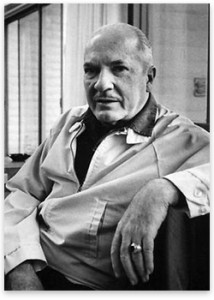
Robert Anson Heinlein (1907–1988)
In this episode of the Libertarian Tradition podcast series, part of the Mises Institute’s online media library, Jeff Riggenbach discusses the life of Robert Anson Heinlein (1907–1988), author of The Moon Is a Harsh Mistress and many other wonderful novels and short stories, and addresses the question of whether Heinlein was a libertarian.
You can also read the transcript below:
When Robert Anson Heinlein died 22 years ago this month, in Carmel, California, at the age of 80, the wonder of it all was that he had managed to live as long as he did. Heinlein, who was born in 1907 in Butler, Missouri, a small town about 65 miles south of Kansas City, had been in poor health for most of his adult life.
His family had connections with the powerful Pendergast political machine, the outfit that later put Harry Truman in the US Senate, but Heinlein still had to spend his freshman year in a two-year Kansas City “junior college” — what today we would call a “community college” — before the Pendergast machine was finally able to wrangle him an appointment to Annapolis. After graduating from the naval academy in 1929 with a degree in mechanical engineering, Heinlein went to sea as an officer. But in his fourth year of active duty, he contracted tuberculosis and was honorably discharged — retired, really, with a small pension — after a lengthy hospitalization at Navy expense.
[continue reading…]
Help Promote Prometheus Unbound by Sharing this Post
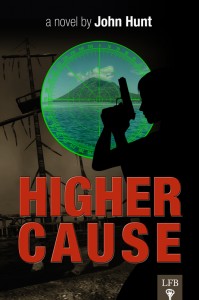
This review is part of a series covering each installment of the serialized novel Higher Cause, written by John Hunt and published by Laissez Faire Books. To catch up, start with the announcement, the book’s link-rich table of contents, and the first review.
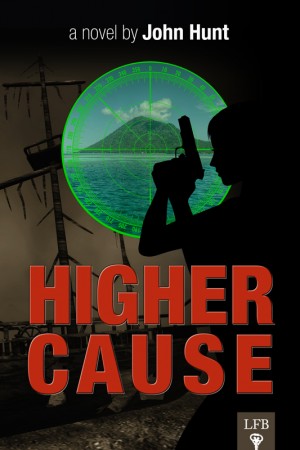
The next installment takes us into a new phase of the book, about a year forward in time. The project is coming together, with The Island being developed at a break-neck pace. Trouble looms, however, as the project’s enemies have not given up.
The first chapter gets us up to speed on the various aspects of the project. More investors have been found, the right island chosen, and many of the financiers have their own sub-projects under way. The chapter ends with an ominous conversation from a group we have seen before.
Right before we are privy to this meeting, there is a nice passage when Petur takes a moment to relax, stares into the night sky and ponders the heavens. It is a nice moment of thoughtfulness, and a view into an aspect of the character, between episodes in the plot. I quite liked it.
The next chapter gives us a tour of the island. It is shaping up to be a marvelous setting, perfect for a science fiction/epic adventure story. And the end shows us one of the the machinations of the enemy.
[continue reading…]
Help Promote Prometheus Unbound by Sharing this Post
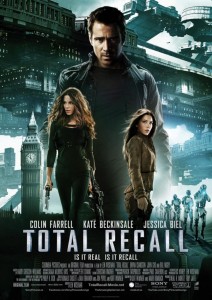
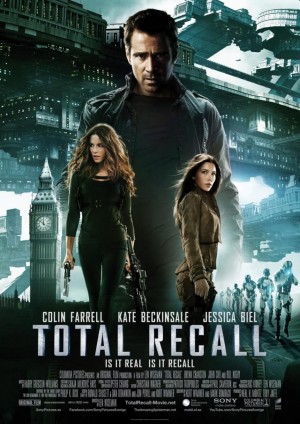
Another movie joins the list of remakes that have, of late, come pouring out of Hollywood. Total Recall has been reimagined for the CGI era, much changed now but sharing just enough plot and details to justify the shared appellation. As I recall, the first Total Recall, starring Arnold Schwarzenegger, was an entertaining bit of science fiction with some action and a satisfying twist or two thrown in. The recent version does not reach the same level, falling short mainly because it invests less in the human element, although it does surpass its predecessor in some areas.
The main characters return with the same names. Colin Farrell plays Douglas Quaid, a blue-collar worker with an itch he does not know how to scratch, a vague sense that something is not right with his life. His wife Lori is played this time by Kate Beckinsale, while the rebel Melina is Jessica Biel. When Quaid goes to Rekall, a company that can insert memories of better times into a client’s brain, they discover that the fake memories of espionage and danger that he is asking for are already in his brain, except that they are real.
Quaid has just a few seconds to process this shock before police burst into the facility and try to arrest him. To his own surprise, instincts and muscle memory kick in and he takes out the squad of cops. The chase is on. When he rushes home and tells his wife, she springs a bombshell on him that catapults the plot forward.
[continue reading…]
Help Promote Prometheus Unbound by Sharing this Post

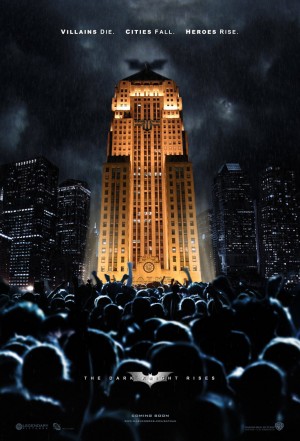
Before the third of the Batman trilogy hit theaters, I had heard that The Dark Knight Rises was a film without hope, with a long and dreary narrative that never loosens its grip. It leaves the viewer without a sense of answers.
I saw it and left confused. It saw it again, and left confused again. All the while, I kept wondering if this interpretive effort would pay off. Maybe it’s just another movie and lacks the ideological significance of the previous two.
I too had read several reviews that had condemned the film from a left-wing point view, arguing that it took a cheap shot at the Occupy Wall Street movement, suggesting that it consists mainly of brainless menaces who are easily manipulated by a strongman leader. The filmmakers deny this.
Regardless, this was probably the best political feature of the film.
However, the merit of its warning about left-wing populism was seriously compromised by the portrayal of the Gotham cops as saintly guardians of the social order. Neoconservatives loved this part of the film, made all the better to them because the prisons are full and Gotham is ruled by a civilian-led authoritarian regime of tight law and surveillance — the neocon dream come true.
What’s going on here? Why is the movie so full of mixed messages and, in the end, so unsatisfying?
Finally, it hit me. And this will be perfectly obvious once you hear it.
The problem is that the film gives Gotham (and us) a choice between two forms of despotism, one “left wing” and one “right wing,” and asks us to choose the lesser of two evils. We can have one of two systems: bureaucratic/authoritarian or revolutionary/dictatorial. The idea of a self-managing society is just out of the question. The film biases that choice by showing one as offered by the evil villain and the other by a corrupt, yet stable status quo.
[continue reading…]
Help Promote Prometheus Unbound by Sharing this Post















